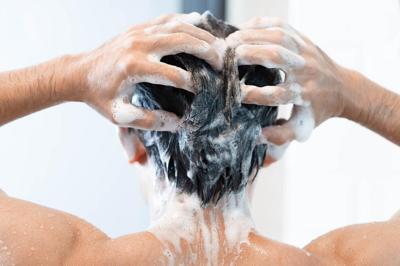Key Takeaways
Researchers developed a gel to help protect hair during chemotherapy
It contains lidocaine and adrenalone, which work by restricting blood flow to the scalp
Human trials haven’t started yet, but researchers are seeking funding
THURSDAY, Sept. 4, 2025 (HealthDay News) — A new shampoo-like gel developed by researchers at Michigan State University could help protect cancer patients from a common and dreaded side effect of chemotherapy: Hair loss.
The gel, which has been tested in animal models, is designed to be applied to the scalp before treatment and left on while chemotherapy drugs circulate through the body.
“This unmet need of chemotherapy-induced alopecia appealed to me because it is adjacent to the typical needs in medicine such as better treatments and earlier, more accurate diagnostics for cancer,” lead researcher Bryan Smith said in a news release. Smith, an associate professor of engineering, is part of MSU’s Institute for Quantitative Health Science and Engineering.
Smith said he began focusing on the issue after interviewing cancer doctors and former patients about hair loss.
"Once I understood, it became clear to me that better solutions are very important to many cancer patients’ quality of life," he explained.
The gel is a water-based gel designed to deliver drugs to the scalp and protect hair follicles. It contains lidocaine and adrenalone, which work by restricting blood flow to the scalp.
This helps prevent chemo drugs from reaching the hair follicles, thereby reducing damage and hair loss.
The gel also changes with temperature. At body temperature, it stays thicker and clings to the scalp. When at cooler temperatures, it becomes thinner and easier to wash away.
The research, publishing in the January 2026 issue of the journal Biomaterials Advances, is still in the early stages and has not yet been tested in humans.
“The research has the potential to help many people,” Smith said. “All the individual components are well-established, safe materials, but we can’t move forward with follow-up studies and clinical trials on humans without the support of substantial funding.”
More information
The Mayo Clinic has more on chemotherapy and hair loss.
SOURCE: Michigan State University, news release, Sept. 2, 2025
What This Means For You
If successful in trials, this gel could give cancer patients a new way to prevent hair loss during chemotherapy.






















(0) comments
Welcome to the discussion.
Log In
Keep it Clean. Please avoid obscene, vulgar, lewd, racist or sexually-oriented language.
PLEASE TURN OFF YOUR CAPS LOCK.
Don't Threaten. Threats of harming another person will not be tolerated.
Be Truthful. Don't knowingly lie about anyone or anything.
Be Nice. No racism, sexism or any sort of -ism that is degrading to another person.
Be Proactive. Use the 'Report' link on each comment to let us know of abusive posts.
Share with Us. We'd love to hear eyewitness accounts, the history behind an article.